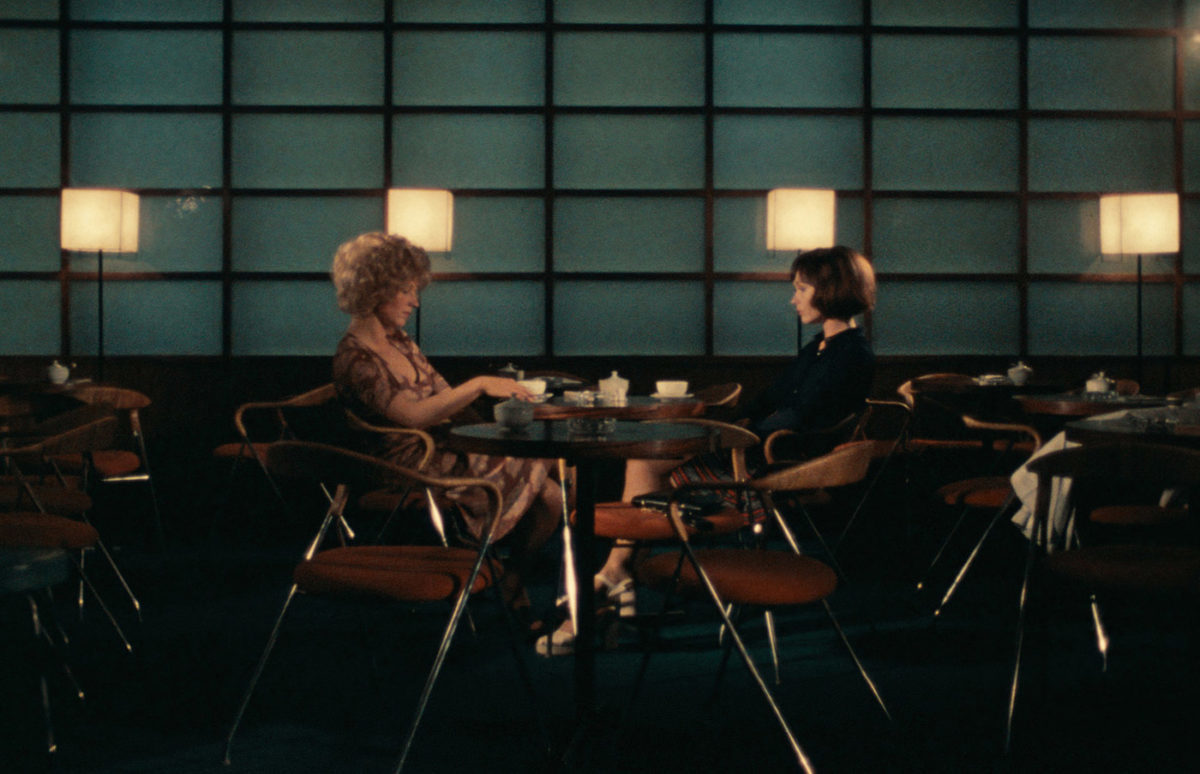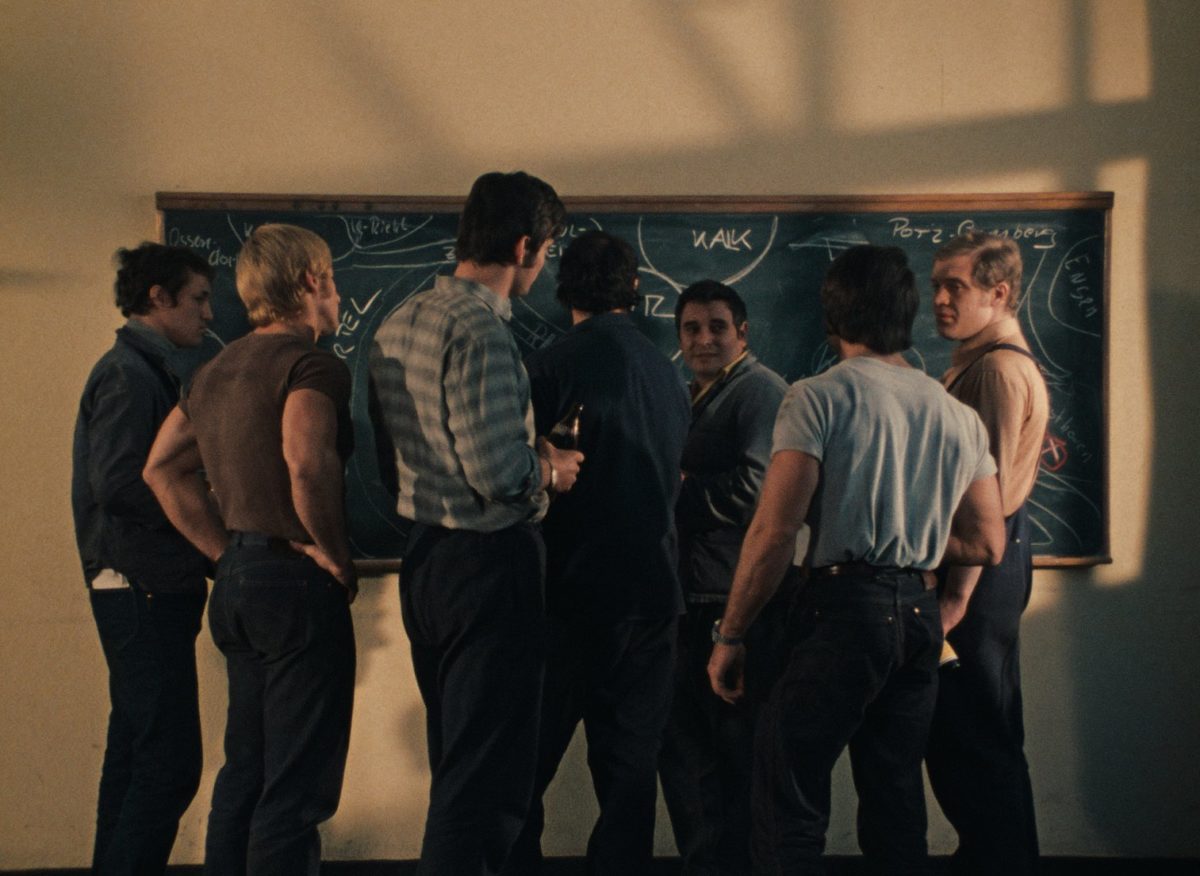As far as I could tell, stories may enable us to live, but they also trap us, bring us spectacular pain. In their scramble to make sense of nonsensical things, they distort, codify, blame, aggrandize, restrict, omit, betray, mythologize, you name it. This has always struck me as a cause for lament, not celebration.
Maggie Nelson – The Red Parts: Autobiography of a Trial
The Problem of the Audience
I like to tell people that I do not have time to watch television; a statement I don’t necessarily think is untrue but just complete and utter bullshit, because I do seem to have found the time to read a 3000-page novel about fin de siècle socialite life, watch a 24 hour theatre performance (five times), spend all night in certain bars hoping at one point someone will realise they’re lonely enough to fuck me half-heartedly and, lastly, I do seem to have found the time to spend a whole Sunday watching a German television series from the seventies at Film Fest Gent.
So when I say that I don’t watch Game of Thrones because I’ve read Shakespeare’s Histories, and that Mad Men hasn’t got anything on even Hopper’s lesser paintings, I am not merely stating a preference, I am talking about aesthetics, and as such of course about ethics.
Rainer Werner Fassbinder’s movies have always intrigued me but I have never been able to pin down just why. My dislike of his Acht Stunden sind kein Tag (1972)If you haven’t seen this series, I’d advise you to first read this piece by Maximilien Luc Proctor. lead me to a way of understanding his body of work, since the fact that I didn’t like it forced me to articulate my stance on his work. The main reason why I didn’t respond well to this series probably lies in the fact that I felt I wasn’t its intended audience.
Acht Stunden sind kein Tag was a TV-project Fassbinder did in the mid-seventies for the German television channel WDR, that explicitly asked him to make a ‘social-realistic’ soap opera on the working class. We should not forget that TV started as a government initiated project to educate its citizens, which has obviously failed catastrophically. And before we use the idea of a TV-station attracting a young, avant-garde wunderkind to direct a big project as a reason to wax nostalgic about seventies Germany, we need to judge the outcome just as conspicuously as we would the pickle vending machine that starts the main love narrative of this series, precisely because it also fails to deliver its goods.
The series chronicles the trials and tribulations of a family of four generations, as they work and love their way through the decade that saw the revolutionary fumes of the sixties evaporate and would lead to the eighties, that most yuppie of all times. (Interestingly, the seventies were a golden age of American so-called ‘independent’ movies that dealt with the heritage of the flower power failure.) The topics these people all too easily cruise through range from the mechanisation of manual labour, housing difficulties, the (marital) oppression by the bourgeoisie and, of course, finding love in this hopeless place.
In terms of considering the contemporary discussion on the ‘golden age of television,’ it’s interesting to notice that the only argument that seems to have any authority in the matter, namely money, was already in play decades before the idea of such a dubious era was even possible. The scale and ambition of a project as ASskT, and Fassbinder’s body of work as a whole, wouldn’t have been possible without government funding. The problem that arises is naturally that of the artist as a prostitute. How can the artist maintain his artistic freedom when this much public money is at stake, especially when the project he conceives deals with the horrible economy that makes the project possible?
Let’s consider the tax-paying audience Fassbinder had in mind when making the series. It is not the pseudo-hipster at a film festival taking place 35 years after his death. Even without taking into account the funding and practical origins of this project, it is crystal clear that the intended audience is one whose lives resemble those of the protagonists of the series. This means that the audience would have consisted of working class people trying to make ends meet in the BDR of the seventies.
As Aliza Ma signalled in Film Comment, Fassbinder explained “[i]n an interview for the series, […] that he wanted to ‘give [his] audience courage and tell them there are possibilities … You have a power you can put to work, because your oppressors are dependent on you.’” This lead many reviewers to crown the series as his most humanist achievement, but considered next to the rest of his body of work, this departure from “love [that] is colder than death” and “fear [that] eats the soul” fails to convince me of a humanist program and instead comes off as emotional dishonesty realised by way of good intentions. This series is a love letter to the working class, with all the blindness and sentimentally inherent to the genre. (We’re far from the inquisitiveness of Godard’s Letter to Jane (1972) – the coda to and further exploration of his own Tout va bien (1972) – which dealt with similar topics in a more complicated and honest way.)
All of this is summed up in a single line spoken by the one character that seems to elude Fassbinder’s presumed humanist approach because he serves as the default antagonist to the plights of the working class. I’m talking about the bourgeois husband of the working girl protagonist who has to come to terms with the prison that is their marriage, a union that was supposed to have lifted her from her determined-by-birth surroundings. (And we can easily recognize his ‘bougie ass’ because he is preoccupied with material things (his tokenistic car) and doesn’t seem to be able to communicate his feelings as freely as his unalienated in-laws.) When she buys a very expensive hat as revenge (because shopping-as-revenge is the only way a nouveaux-bourgeois wife can communicate that her life is empty and she wants to find a job to feel something again), her husband slaps her in the face and tells her “I pay for what you need, so I decide what you need.” Now take this line and use it to scrutinize the creation process of Acht Stunden sind kein Tag.
Yet, again, I am not working class. I’ve had jobs but never identified with them. I am a philosophy student with enough time on his hands to spend the whole of Sunday at the movies. There is no courage for me to find in this Marxist-for-dummies television series because, apart from the whole “il n’y a pas de hors-capitalisme” [after Derrida’s “il n’y a pas de hors-texte”], I don’t need to free myself from poor work conditions and abuse from my work patrons. (I’m too privileged for that.) In fact, the person I related most to in the series is the above-mentioned bourgeois asshole, because this guy is the incarnation of the stage upon which my youth has taken place. But don’t get me wrong, I don’t need to relate to any characters to be able to engage with a work of art. And yet this absent ‘need for relation’ with the characters nevertheless might be the reason why this series struck me as dishonest. Maybe my Brechtian expectations prohibited me to see the value in this work, made me suspicious of the emotional naiveté and resulted in me deeming it sentimentality? (I honestly don’t know.)
Let me tentatively broaden the conversation topic to try and make sense of this confusion.
I have read more Marxist theory than most German workers in the seventies and I can argue this because I have read more Marxist theory than most people regardless of their social class or era. I dare stating that I am not unsympathetic towards most Marxist thinking but its main flaw, and this flaw is overlooked time and time again when talking about any narrative, consists of its propensity for reducing the meaning (in the biggest possible sense) of human existence to only those parameters that have meaning within the theory itself. This is the case with Marxism (as I have tried to prove by using Acht Stunden sind kein Tag as an example) as well as with the so-called modern, scientific psychology that makes up the general narrative of television as a whole.
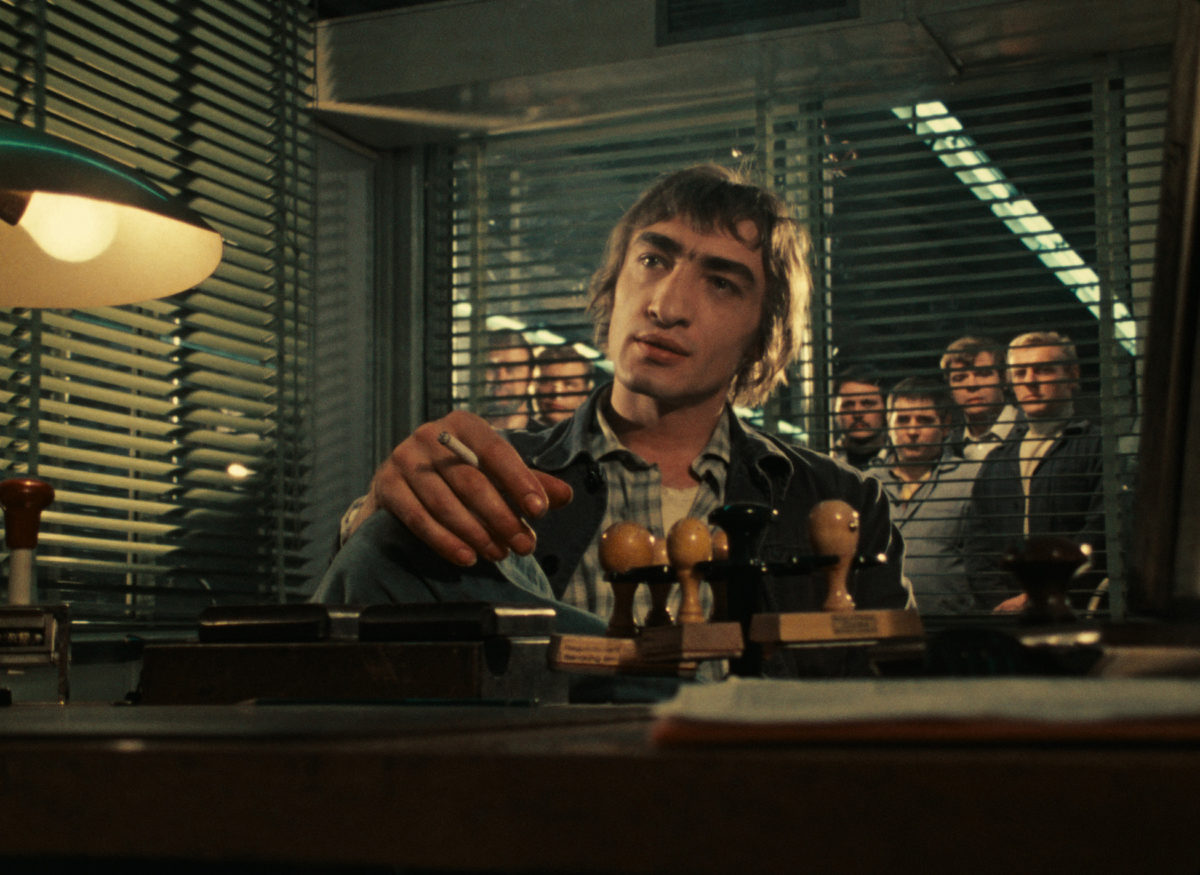
The Narrative Fit
Rainer Werner Fassbinder famously said his work dealt with the exploitability of emotions. When someone says, “I love you,” in one of his works, this never happens just as a statement about one’s own personal feelings but always functions as a demand to the other. (I Only Want You to Love Me? Sure, honey.) The love of another makes up a possibly small but most of the time rather extensive part of the so-called narrative self that is a big concept in contemporary philosophy dealing with the subjects of identity and love.
It basically boils down to the notion that we fall in love with people because we see a narrative fit between our own conception of identity and the presumed identity of the other. Love is in a way a crossover episode between two series that existed apart from each other and will hence forward share and intertwine their respective universes. But to make this crossover work, compromises need to be made. Some singularities and idiosyncrasies will have to be given up in order for the (Tinder)match to work in the long run. Therefore the “I love you” is a demand for the other to give up part of his universe in exchange for one’s own. Loving someone always means colonizing this Other.
When this happens on an interpersonal scale, the exchange might be rather small and in the long run meaningful because what is begotten in return is a new, shared narrative that can be a possibility for a transformation (albeit arguably for better or for worse) that wouldn’t have been possible in the unchallenged singular narrative.
As Lou Reed sang:
“you make me forget myself/
I thought I was someone else/
someone new.”
But when this narrative fit happens between a singular person and an abstract idea the exchange becomes unclear and much more dangerous because the two negotiators aren’t playing in the same league. There’s less at stake for an idea because it is incapable of losing the most valuable thing a human can lose: the singularity of the bodily experience. When you wage your body against something that isn’t even able to recognise let alone value this literal incarnation of “once in a lifetime,” the deal is rigged from the start. And thus human history has been a continuous streak of ideas winning bets humans could never hoped to have won. Every heroic endeavour inevitably revealed by time as a stupendously stupid game of bluff.
The fact Marxism began as a counterpoint to the Hegelian concept of history as the development of ‘Ideas’ (a faux-translation of Hegel’s concept of ‘Geist’ which I use for the sake of clarity in this piece), was a (not untimely) revolutionary return to the importance of human experience as starting with matter (hence the concept of material dialectics) but as tends to happen when time progresses, the pendulum swung all the way to the other end of the spectrum and in practice Marxism became a parody wherein the myriad possibilities of bodily human experience were toned down to a mere understanding of the body as the primary mean for what the Germans untranslatably call ‘Arbeid’. Work became the curse of the working class (to appropriate Oscar Wilde’s maxim), because they were no longer afforded the humanity of being defined in other terms.
For this reason, I find Acht Stunden sind kein Tag not a bad work per se, but a dishonest work. Because the artist who notably investigated the exploitability of feelings and other, grander narratives (as in the BRD-trilogy wherein the heroines fall prey to what is known as Germany’s post-war Wirtschaftswunder) all of a sudden decided to make (the representation of) human lives subservient to a grander narrative (that of their economical and societal situation), in such an obvious and exclamatory way that his practice becomes propaganda that extends the dehumanization process to its audience.
When the suicide of a minor character has almost no emotional impact and is instead treated as nothing more than a plot point that enables the educational antagonism between two workers striving for the same, now vacant position, we can, in my opinion, safely conclude that everything in this series only happens to advance a narrative that uses rapid-zooms as exclamation points to shout in our faces how much better everything could be if we, ‘damnés de la terre’, would unite the human race.
(Shakespeare, that great forefather of television already knew, that ‘[a]ll’s well that ends well’ but the contrast of his body of work with the golden-age TV-shows that are its misunderstanding offspring couldn’t be bigger. First of all, I want to dare you to name one television show that in its whatever-sticks approach is as joyously and frivolously stupid as even the least of the Bard’s comedies and, secondly and more importantly, I dare you to retell me a tragic Shakespearian narrative that would do justice to his status as greatest playwright that ever walked this mortal coil. You can’t and that’s because Shakespeare hasn’t written a single compulsive narrative that doesn’t bleak in comparison to the soliloquy and iambic verses his ‘ce qu’on appelle’ narratives are a mere excuse for. We read and watch Shakespeare for his ‘words, words, words’ and not for the frame in which these are brought forward.)
The dishonesty in this catering to ideology is what I find problematic about Acht Stunden because it basically means talking down to your audience (how well-intended it may have been) and art should never do this. I cannot count how many times the stakes-of-the-moment in this series are repeatedly explained in a simplified manner to one of the children to make sure nobody should feel left out by the economical and rhetorical machinations of the plot. Overall this series has an ambiguous interest in the education (of children? the working class? its audience?) because time and time again the characters discuss this topic in a style reminiscent of the After School Special and the Very Important Episodes of teenager-targeted series wherein the ingenuous youngsters were taught that on every street corner some man was patiently waiting to take them home and ruin their innocence. (Of course now I can vouch this to be true, in the best way possible.)
When I call Fassbinder a prostitute in this case, I am not indicating that he shouldn’t accept money from the government as funding for his work (I agree with Orson Welles that an artist should just steal the money necessary to make his work, as cited by Hossein Sabzian in a documentary on his life after Kiarostami’s Close-Up, and Chantal Akerman stole the money for some of her movies from the X-rated theatre she was working at), the prostitute part is the artist putting aside his artistic vision in order to cater to an audience that he believes needs certain political views put before them as bluntly as cinematically conceivable. Whereas a prostitute gives us capitalism disguised as love, the artist-prostitute gives us propaganda disguised as art and thus forces the viewer to take on the role of consumer, which is a role that restricts us in our reflective possibilities. We are spoon-fed so we must be eating lies because truth is never easy to swallow.
Let me clarify that I am not necessarily talking about the overall happy tone of the series. My problem lies not in a positive worldview as such, I just resent the Disneyfied version of the working class where everything ends well because it was the writer’s preconceived idea that the narrative should end well. Rumour has it that the series would end with a more trademark-Fassbinder suicide-galore but I’m not here to judge rumours. (I do that outside office hours.) The problem would still stand that the narrative demands its subjects to align themselves according to its needs.
The closed narrative is a prison that might well be a rather comfortable and even ‘happy’ one.
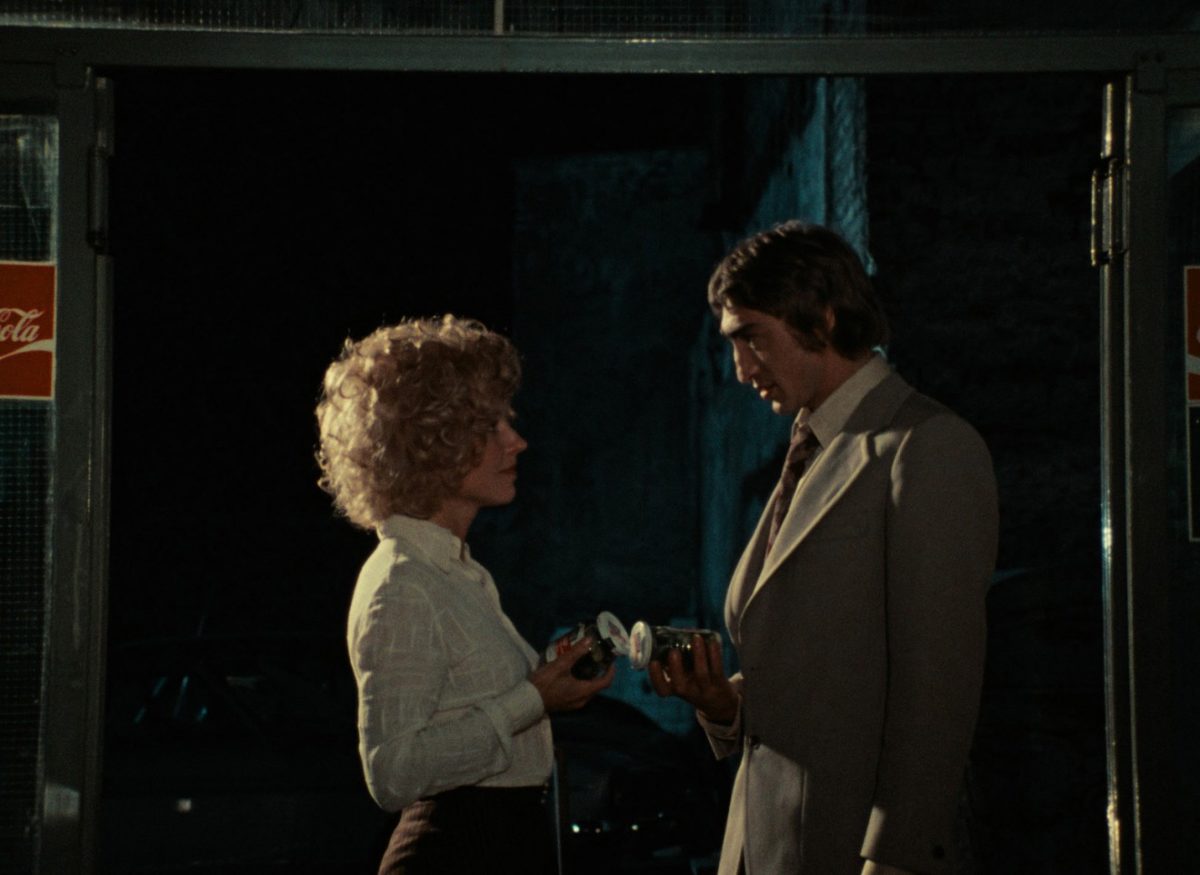
The Writer’s Medium
Even though Bob Dylan might have set some sort of precedent, I doubt a TV writer will ever win the Noble Prize for Literature, notwithstanding the fact that TV is a writer’s medium. Just not a medium for one writer, since most of the time a pack of writers will work on a TV-show and they are not the kind to scribble together a Noble-Prize worthy output. Whatever that may be.
As Woody Allen famously said: “Those who can’t do, teach. And those who can’t teach, taught at my school.” Those who can’t write, teach writing courses and those same people write for television. And how do we know this? Because of narrative, of course.
In a piece for The New York Times (and later collected in his tellingly Freudian titled essay collection Discontent and Its Civilizations) ‘Are the New ‘Golden Age’ TV-shows the New Novels’, Mohsin Hamid presents the rise of the Golden Age of television as a crisis for the novel which at the same time is a new opportunity to “boldly go where no one has gone before” as he coyly puts it. The idea of the novel leaving plot and character behind, is at first interesting, but for someone who wrote novels that have nothing to do with what we could call the well-made novel, it is remarkable to notice that Hamid doesn’t see that the novel has never been an art that focused on these traits in the first place.
In an essay that accompanied the publication of his theatrical adaptation of Diderot’s novel Jacques le fataliste et son maître, Milan Kundera similarly argued against the claim that all the novel’s possibilities had been exhaustively explored, stating in contrast that only the psychological narrative had been thoroughly examined and all the other conditions humaines had been neglected. Referring to his own oeuvre as existential inquiries he places himself in the tradition of Don Quixote, Tristram Shandy, The Man Without Qualities, Ulysses and The Sleepwalkers. All novels that cannot be recounted in terms of narrative, let alone a psychological one.
As we all know, psychology is an invention of the bourgeoisie that had to fill up the void that was left after God had been declared dead. (Even though he still had to be murdered some decades later.) Freud, the first psychologist super-star, takes an interesting position in the history of this new and still young narrative (!) because his writings are no longer deemed scientific enough to have a rightful place in the canon of a branch that so desperately wants to be legitimised as a science.
The sanctification of science – is nothing more than the latest trend in the on-going disenchantment of the world, which reads as a continual declaration of the bankruptcy of our imagination. The problem herein is most visible when we consider the psychological narrative next to its supposed twin-brother the no less pseudo-scientific economical narrative of which the baseline is formed by the TINA-(there is no alternative)-chorus we’ve been hearing for years (possibly decades), and whose crises are incapable of being truly tragic because the possibility of catharsis is undermined by the underlying, more profound crisis of the imagination. As Heidegger once put it: “Science doesn’t think.” (Because explaining is not the same as understanding.) Exposition is not the same as discovery.
What do we talk about when we talk about ‘the Golden Age of Television’? People giving exposition. From Mad Men to Breaking Bad to Game of Thrones, most of the screen-time is devoted to people telling each other (and us) what they’re doing, what they’re about to do, what they’re feeling etc., etc., ad nauseam. Nothing is left untold by which I mean nothing is left unexplained because in the end everything will have to make sense in a finale that has been presupposed from the beginning. Some will win and some will lose but everyone’s fully committed to the game (of thrones), nobody will break even and all men turn out to be what they coined themselves to be from the beginning: mad (just kidding, obviously I mean boring). Nothing is left unexplained, no mystery is discovered. Life is something that gets meaning from an end that was already presupposed from the beginning. We only compulsively follow the threads that were set out at our births and come together in a most meaningful way when we die. But is this really how life goes?
I don’t think so. Because we, people, tend to fuck up. A lot. Most of the time. We fuck up in ways that do not ever get to be meaningful. If we achieve meaning in our lives it’s mostly despite ourselves. The father that refuses to speak to his daughter and blames her for the failure of his marriage (and vice versa) is fucking up. The narrative redemption that could come from a reunion in the (not so distant) future is not a given because most of the time people die before they realise how badly they fucked up. The hardest part of living is living with the things we fucked up, because they are completely meaningless. When Oscar Wilde (him again!) concluded his preface to The Picture of Dorian Gray with the much misunderstood “All art is quite useless,” he wasn’t merely defending his l’art pour l’art principle and referring to the so-called societal (and thus economical) function of art; he was hinting at something he mightn’t even have understood himself. Art is incapable of offering meaning to something as complex and contingent as human existence. It can however be meaningful by showing us glimpses of the myriad possibilities in which life can be lived despite its meaningfulness. Meaning is something we make and it takes a lot of work.
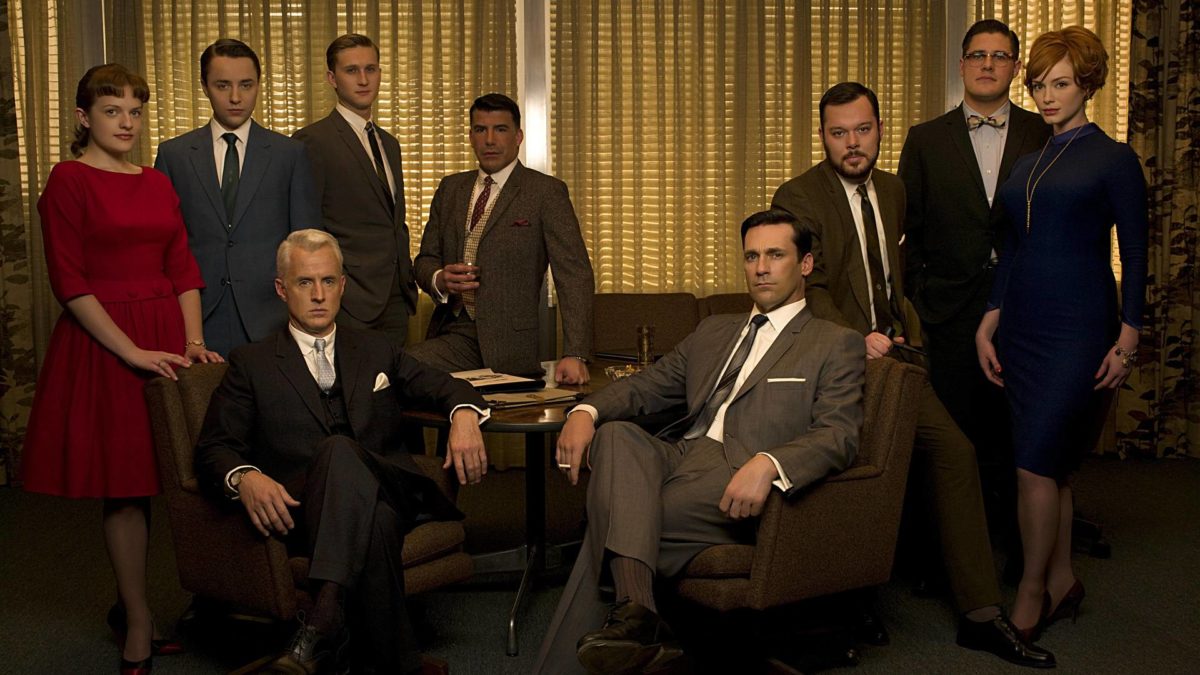
The Open Narrative
And yet, I do believe we tell ourselves stories in order to live. Human beings are at core narrative beings. The history of our stories is at once our greatest pride and biggest failure because all those stories haven’t gotten us any further. The great questions we’re so good at asking, are, 40.000 years after the first cave paintings, far from answered. The provisional answers that had the longest lifespan bear the greatest death-count. Tomorrow and tomorrow and tomorrow we’ll ask ourselves those exact same questions because the answers we’ve had tonight won’t stand the trial of sunrise. Life is a tale, told by an idiot, full of sound and fury, signifying nothing and thank God it is, because this leaves us the possibility to create our own stories and abandon them again. It leaves open the possibility for change or hope, if you will, that not everything in our life is compulsively driven towards a conclusion that has been written down before it even began. Of course we all die but, as the Dutch writer Arnon Grunberg wrote in one of his letters published under the title Aan nederlagen geen gebrek (No Lack of Defeats, 2016), this cannot be the final conclusion. Our narratives are open to the possibilities of change if we dare to take responsibility. Nothing has been declared away from the beginning. (And with this I reference an early text by Levinas in which he states that the biggest problem of psychologists consists of the fact that, after they have finished applying their method to a human being, everything has been explained by linking it to extra-individual sources. “Nothing human has been left.”) We are capable of becoming who we already were because we can repurpose and thus redefine our stories again and again by staying open to those things that fall outside of our frame of reference. By confronting the inexplicable head-on and not trying to bring it back to our own proportions by interpreting it, leaving it untranslated.
Ludwig Wittgenstein did not become an arms dealer in Africa after publishing his Tractatus Logico-Philosophicus. Even though its final statement tells us that “whereof [we] cannot speak, thereof [we] must be silent,” he furiously kept on writing because at the same time he acknowledged that the limits of the logical (rational, scientific) language excludes us from talking about those things that are most important to us. The mysticism in his philosophy is at the same time the knowledge that our understanding of the world is limited to our rational thoughts and the feeling that the world is so much bigger than our understanding of it. If art wants to tell us something meaningful about our complete experience of existence then it will have to show us the powerlessness of our narrative and our understanding, and hint at everything that exceeds our rational grasp. It has to show us those things whereof we cannot speak.
The Dash (a caesura)
There’s a famous story by Heinrich von Kleist called The Marquise of O (made into a film by Eric Rohmer which I haven’t seen), which features what scholar Susan Winnett calls, “the most delicately accomplished rape in […] literature” (whatever that may mean), because the supposed rape (of which it is not completely certain it ‘actually’ happens) is represented in a dash, a caesura in the text that at first glance may be read as a typo as I did the first time I encountered this story. The possibility of this rape complicates the whole narrative because it is left to the reader to try and ‘make sense’ of it in the context of the rest of the story that never references it again and also works without taking this into account. (I believe this dash is an attempt at conveying trauma into the domain of literature. Something I hope to investigate in another essay.)
There is a similar dash in this essay that you likewise might have misread as a typo. The dash is placed at the exact moment my writing of this essay was interrupted by a phone call of the guy I was dating then. He called to tell me his best friend was hit by a car and died.
What to make of this? During the phone call I was unable to utter anything more than insipid platitudes that were so beneath the regard I had for this man that I felt ashamed for not being able to come up with something less meaningless to say. For someone who thinks of himself as rather articulate and eloquent, the discrepancy between my usual mastery of language and the apparent failure of words in the given conditions was shockingly informative. Apparently death doesn’t let itself be narrated. (In Wittgensteinian terms: “Death is not an event of life. We do not live to experience death.”)
I was just starting to date this guy and still unsure about what I could possibly want from him. (Oh, how, for once, the tables had turned.) The death of a loved one is always a caesura in the normal proceedings of everyday life: an event that forces us to consider things in the light of recent and possible future loss; especially when this death is unforeseen and sudden and in its abruptness completely meaningless. The death of this young women is not part of her narrative, it does not all of a sudden give meaning to everything that happened before, nothing is rounded up, concluded, every possibility is tragically put to an end. The only possible meaning this death could have is in the narratives of others, but doesn’t it feel wrong, immoral to think of someone else’s life as nothing more than a (albeit major) plot point in the lives of those around her? Is this the most any of us can possibly mean?
Consider the narrative possibilities that lay before me. I could use this death as an easy way-out of a situation that confuses me or it could, on the other hand, give me the strength to man up and face the situation at hand with the courage every sincere relationship demands. But wouldn’t both options mean a same narrowing down of a unique human life whose waste could never be done justice by any kind of closed narrative? Wouldn’t it be more honest to let the caesura be just that and recognize this waste as nothing more than an absence of meaning? I always quiver when I hear people talk about how someone’s death won’t have been in vain because their so-called legacy will live on. I don’t think this is necessarily impossible but I nevertheless feel that this is one of these stories we need to tell ourselves in order to live (on). These stories are probably the only things that will last after losing someone, but we should recognize that they are an admission of weakness. We can never fully recover (the loss of) our loved one. Something is tragically and eternally lost without creating any new meaning. An art that wants to have anything to say to me about my life, can only show me this. Because, as Joan Didion concludes the essay that starts with the famous “we tell ourselves stories in order to live”: “Writing has not yet helped me to see what it means.”
